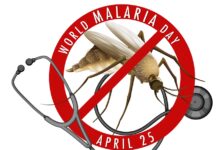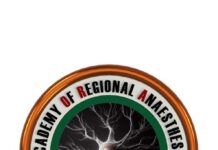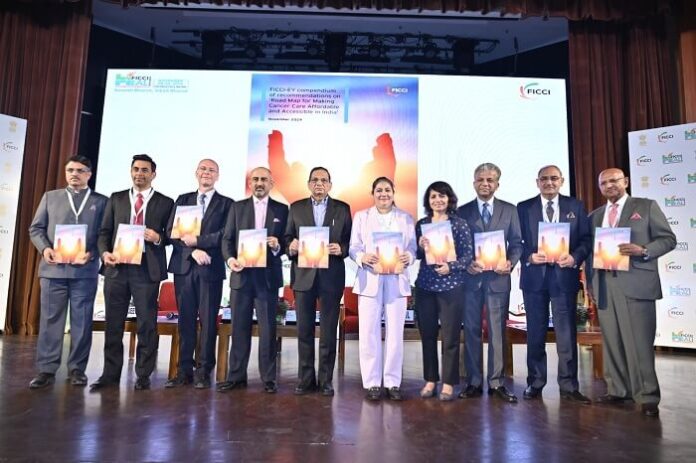The FICCI-EY Parthenon has launched a comprehensive report titled ‘Road map for making Cancer care affordable and accessible in India’, based on recommendations from five regional roundtables held over the past year, under the Ministry of Health & Family Welfare, Government of India. One of the key recommendations in the paper is the call for the Government of India to implement a National Cancer Care Policy/Program, supported by a dedicated funding allocation for the six most prevalent cancers.
As per the press release, the report highlights that India faces a significant cancer burden, with the reported incidence in 2022 at 19 to 20 lakh, but the actual number is believed to be 1.5 to 3 times higher. The incidence is expected to rise sharply in the next five to six years, potentially reaching 45 lakh new cases. Moreover, cancer care infrastructure is unevenly distributed, with a heavy concentration in urban areas, placing a significant strain on tertiary care centers. The financial burden of cancer care is also concerning, with costs approximately three times higher than those for other non-communicable diseases (NCDs) and continuing to rise. Despite contributing 20% of the global cancer burden, India’s participation in global clinical trials is currently only 4%.
Dr. Harsh Mahajan, Chair of the FICCI Health Services Committee, stated that while some states have made small strides in cancer care and initiated unique programs, there is a clear need for more extensive measures that focus on prevention and treatment. He described the whitepaper as a strategic guide for policymakers, healthcare providers, and the wider community to reshape cancer care in India.
Dr. Raj Gore, Co-Lead of the FICCI Task Force on Cancer Care, stressed the importance of supporting women’s cancer care in India, focusing on removing barriers like low awareness, fear of screening, and financial constraints. He emphasized the need for early detection and accessible treatment to improve patient outcomes.
Ms. Srimayee Chakraborty, Partner at EY Parthenon India, pointed out that India’s cancer care system faces challenges at every stage, from awareness and prevention to screening, detection, and treatment access. Strengthening infrastructure, especially in rural areas, and fostering public-private partnerships, she said, could help make cancer care more efficient and widely available.
Ms. Malti Sachdev, Senior Vice President of Siemens Healthcare, noted that less than 15% of women in India undergo safe screenings for breast cancer, with many avoiding it due to fear and lack of awareness. She suggested that India adopt models like those in Korea and Japan, which cover a large portion of cancer treatment costs, and recommended mandatory screenings and inclusion of advanced therapies in insurance programs.
The report calls for policy prioritization for cancer care at the Ministry of Health and recommends a Comprehensive National Cancer Care Policy. This program should focus on all stages of care, including diagnostics, medical, surgical, and radiation treatments. Additionally, government schemes should be revised to allow for supplementary cancer coverage, increasing the amount from basic coverage (e.g., from INR 5 lakh to INR 15-20 lakh), to make innovative treatments more accessible and improve patient outcomes.























